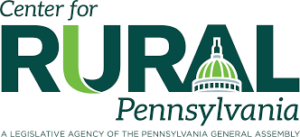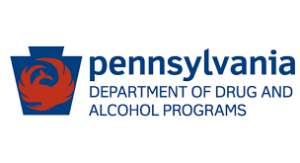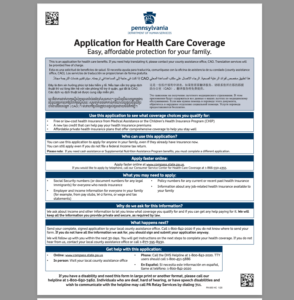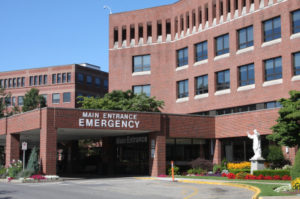PA Health Policy Update for Friday, May 27
The following is an update of selected state health policy developments in Pennsylvania for the week of May 23-27, 2022. (Some of the language used below is taken directly from state documents.)
 General Assembly
General Assembly
- The Senate unanimously passed House Bill 889, which authorizes the State Board of Nursing to approve graduates of international nursing education programs to sit for the RN licensure examination provided that such international programs are determined to be equivalent to that which is required in Pennsylvania. The bill will now be sent to the governor.
- The Senate passed Senate Bill 848 by a vote of 35-12. This legislation creates a Chief Nursing Officer position in the Department of Health. The bill will now be sent to the House for consideration.
- The House unanimously passed House Bill 1644, which directs the Department of Human Services to develop an escalation process to place Medicaid patients with behavioral health or long-term-care needs in an appropriate care setting. The bill now will be sent to the Senate for consideration.
- The House unanimously passed House Bill 2530, which ends the practice of prudent pay in the Department of Human Services’ Office of Developmental Programs. The bill will now be sent to the Senate for consideration.
- The House Insurance Committee favorably reported House Bill 2585, which prohibits the Department of Human Services from developing or using bidding or service zones that limit a health service corporation or hospital plan corporation contractor from submitting a bid.
- The Senate Banking & Insurance Committee favorably reported House Bill 2419, which expands access to outpatient psychiatric care via telemedicine.
- The Legislative Budget and Finance Committee released a report on the Pennsylvania CARE Act (Act 20 of 2016) and its impact on patient outcomes. Find the report’s highlights here and the full report here.
Independent Fiscal Office
The Independent Fiscal Office (IFO) has revised its revenue estimate for the current fiscal year, increasing it to $47.7 billion, a $5.8 billion increase over its initial estimate. According to the IFO, revenue in most categories, including corporate net income tax, sales tax, and personal income tax, exceeded projections. The IFO also cautioned that the state will likely see reduced revenue collections in future years. Find the IFO’s full report here and a PowerPoint presentation of its initial FY 2023 revenue estimate here.
 Office of the Attorney General
Office of the Attorney General
The Office of the Attorney General released a report on the significant increase in fentanyl importation and use across the commonwealth. The report highlights the Bureau of Narcotics Investigations’ seizure of more fentanyl in the first three months of 2022 than it seized in all of 2021. The report recommends weighing the costs and benefits of legalizing fentanyl test strips to combat the increase in overdoses and continuing to make access to substance use disorder treatment a priority. Find the full report viewed here.
Department of Human Services
- The federal Centers for Medicare & Medicaid Services (CMS) has introduced a new “Renew Your Medicaid or CHIP Coverage” web page to help current Medicaid and CHIP participants prepare for the review of their eligibility for those programs that will begin when the formal COVID-19 public health emergency ends.
- The Department of Human Services (DHS) has announced its intent to allocate $70 million in state and federal funds in FY 2022 to establish a new class of supplemental payments to promote the continuation of quality medical services to individuals enrolled in Pennsylvania’s Medical Assistance program and provide financial relief to hospitals during COVID-19 pandemic. Acute-care general, medical rehabilitation, and drug and alcohol rehabilitation hospitals enrolled in Medical Assistance are eligible for these payments. Learn more about the qualifying criteria and payments from this Pennsylvania Bulletin notice.
- DHS has posted the minutes of the April 28 meeting of its Medical Assistance Advisory Committee. Find those minutes here.
- DHS has circulated the following materials from the May 26 meeting of its Medical Assistance Advisory Committee:
 Department of Health
Department of Health
- The Department of Health (DOH) has issued an alert updating previously released information about monkeypox in the U.S. and elsewhere and offering information for clinicians and the public, including links to additional resources. Find the alert here.
- DOH has notified skilled nursing facilities that they will no longer be permitted to hire temporary nurse aides after June 6, 2022 due to the expiration of a CMS waiver related to the COVID-19 pandemic. That waiver enabled nursing facilities to hire nursing assistants who had not yet passed the skills and written portions of the state nurse aide examination. In addition, nurse aides hired under the waiver must pass the skills and written portions of the state nurse aide examination by October 6 or they cannot continue to work in that capacity. Go here to read the letter explaining this change.
- DOH has published its final set of proposed amendments to the state’s long-term-care facility regulations. Learn more about the changes that have been proposed and the process DHS intends to use to move from proposed to final regulations from this Pennsylvania Bulletin notice.
COVID-19: By the Numbers
- Daily COVID-19 case counts climbed for the ninth consecutive week, rising seven percent, from a seven-day average of 3971 new daily cases on May 18 to 4238 new daily cases on May 25.
- The seven-day average of COVID-19-related deaths tripled, from 12 to 36.
- The growing number of COVID-19 cases in the state led to an 11 percent increase in COVID-19-related hospitalizations in the past week.
- The number of these patients on ventilators, on the other hand, declined 19 percent over the past week while the number in hospital intensive care units rose 12 percent.
- Sixty-four of Pennsylvania’s 67 counties are currently experiencing high rates of community transmission of COVID-19, leaving three counties experiencing “only” a substantial rate of community transmission.
 Pennsylvania Health Care Cost Containment Council (PHC4)
Pennsylvania Health Care Cost Containment Council (PHC4)
PHC4 has published a new report on the number of cancer-related surgeries performed in Pennsylvania during the state’s 2021 fiscal year. Go here to learn about the report and find a link to the report itself.
Stakeholder Events
DHS – Medical Advisory Committee – Managed Long-Term Services and Supports Subcommittee – June 1
The Medical Assistance Advisory Committee’s managed long-term services and supports subcommittee will be held virtually on Wednesday, June 1 at 10:00. There will be an opportunity to submit questions and offer comments. Go here to register to participate or dial in at 415-655-0052, access code 498030891#.
DHS – Office of Long-Term Living – Financial Management Services Stakeholder Meeting – June 3
DHS’s Office of Long-Term Living will hold a financial management services stakeholder meeting on Friday, June 3 at 1:00. The purpose of this virtual meeting is to discuss upcoming changes for the administration of financial management services under the Community HealthChoices, OBRA Waiver, and Act 150 programs. Representatives from the Office of Long-Term Living and Community HealthChoices managed care organizations will discuss upcoming changes. Go here to register to participate.
Department of Human Services – Long-Term Care Learning Network/Nursing Facilities – June 23
DHS’s Long-Term Care Learning Network, part of its quality strategy for nursing facilities, is offering in collaboration with the Community HealthChoices managed care organizations and the Jewish Healthcare Foundation a “learning collaborative” webinar in which participants in past Long-Term Care Learning Network events share information about best practices for avoiding hospitalizations from nursing homes. The webinar will be held on Thursday, June 23 at 2:00 and the deadline to sign up to share best practices is June 1. For further information about the webinar, sharing best practices, and participating virtually, go here.
 Primary Election
Primary Election Department of Human Services
Department of Human Services Stakeholder Events
Stakeholder Events General Assembly
General Assembly Department of State
Department of State General Assembly
General Assembly Department of Drug and Alcohol Programs
Department of Drug and Alcohol Programs Governor Wolf
Governor Wolf COVID-19: By the Numbers
COVID-19: By the Numbers General Assembly
General Assembly When the pandemic began the federal government offered the states additional money to support their Medicaid programs; in exchange, the states needed to agree not to review recipient eligibility for the duration of the public health emergency. When the pandemic ends, though, states will have one year to review the eligibility of all of their Medicaid recipients. While the federal government has encouraged states to take the full year to complete this task, Pennsylvania Medicaid officials have indicated that they hope to complete the process in six months. A bill in the state legislature would give Medicaid officials even less time, calling for the review to be completed within 60 days.
When the pandemic began the federal government offered the states additional money to support their Medicaid programs; in exchange, the states needed to agree not to review recipient eligibility for the duration of the public health emergency. When the pandemic ends, though, states will have one year to review the eligibility of all of their Medicaid recipients. While the federal government has encouraged states to take the full year to complete this task, Pennsylvania Medicaid officials have indicated that they hope to complete the process in six months. A bill in the state legislature would give Medicaid officials even less time, calling for the review to be completed within 60 days. Governor Wolf
Governor Wolf Governor Wolf
Governor Wolf Department of Health
Department of Health